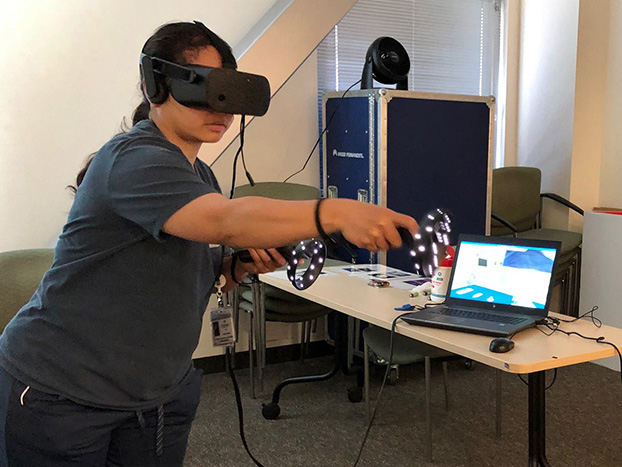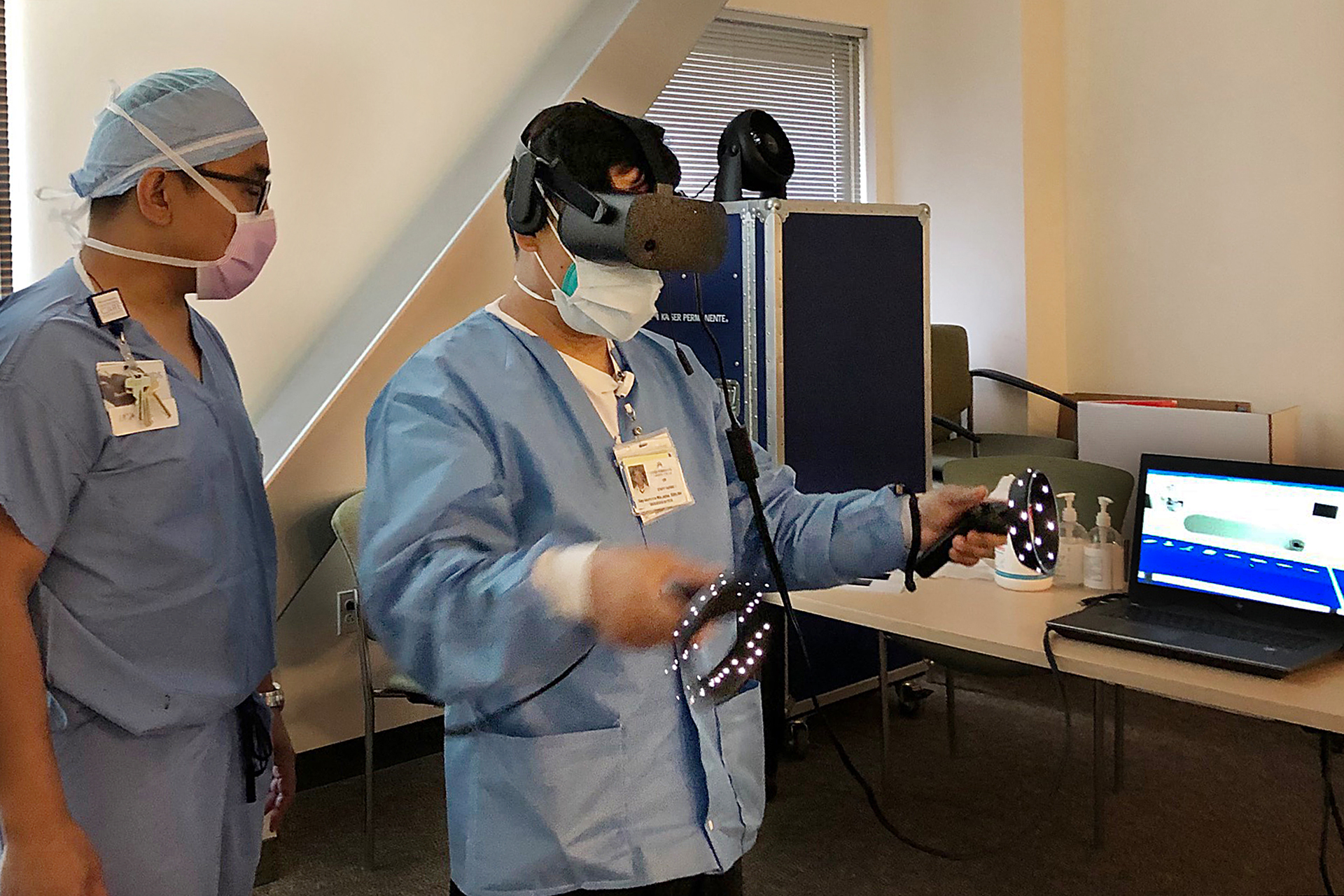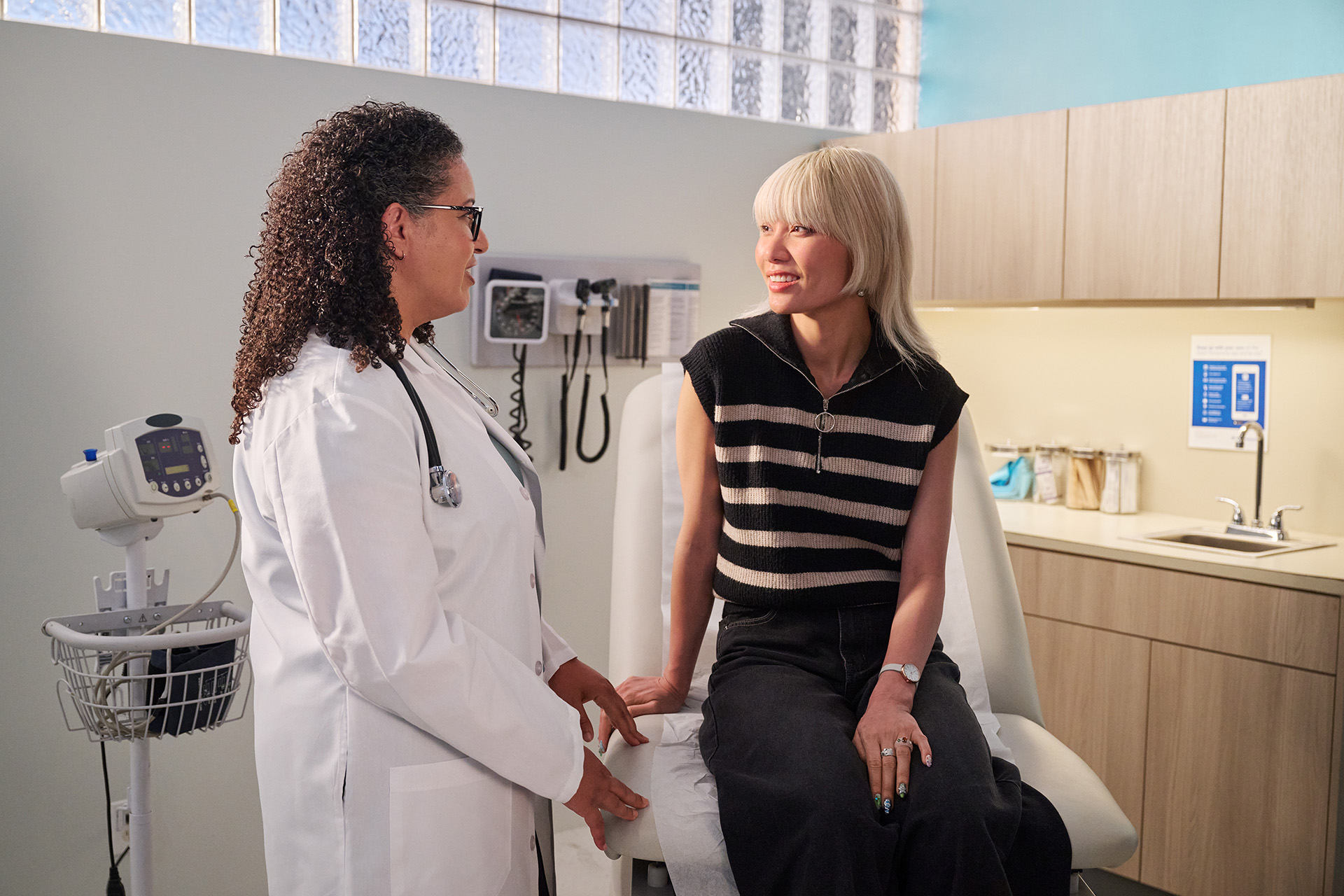Kaiser Permanente Northern California is testing new virtual reality training technology for nurses and surgical technicians that speeds the process of identifying and handling instruments during a surgery.
Anticipating and delivering the right surgical instrument, a scalpel or forceps, retractor or clamp, for example, to a surgeon at the right time is key to a smooth operation, said Jenny Mendenhall, RN, perioperative consultant for Kaiser Permanente’s Patient Care Services, who is leading the training pilot.
“The nurses and surgical techs need to know how to assemble the instruments and the order in which they are used during an operation,” Mendenhall said. “Traditionally it’s been exclusively taught in the classroom and then side by side with an experienced nurse or technologist in the operating room. This new technology won’t replace that, but we think it can greatly shorten the learning curve.”
New nurses and surgical technologists need to know the tools intimately and be able to anticipate their use. The training is intense. Mendenhall said virtual reality, in which a user wears a headset to see a virtual operating room and hear the voice of a surgeon, also can be used to train experienced operating room nurses and technologists in specialties such as cardiovascular and orthopedic surgery.
“It is estimated that 1 hour of virtual reality training is equal to 8 hours of person-to-person training in the clinical setting.” Jenny Mendenhall
A 2-dimensional product in the pilot that uses an iPad works in a similar fashion, with a trainee hearing the voice of a surgeon and locating the correct instrument on the screen.
“You can introduce trainees to the instruments in the classroom, then reinforce the learning when they put on their virtual reality headset or use the 2-dimensional iPad program, and then assess the learning,” said Mendenhall. “It is estimated that 1 hour of virtual reality training is equal to 8 hours of person-to-person training in the clinical setting.”
Kaiser Permanente Northern California already has trained 15 nurses and student surgical technologists using virtual reality. Seven more nurses will begin training this month. If adopted, about 250 newly trained operating room personnel would use the new technology each year, Mendenhall said.

“This virtual environment is engaging, immersive, and safe,” said Benson Yeung, regional director of practice excellence, clinical education, and effectiveness in Patient Care Services. “It’s easily repeatable training and is less resource intensive in terms of people and setting up the equipment. It doesn’t replace reality, but it gives time to learn and practice.”
Not only will it reduce the time to learn, both Yeung and Mendenhall hope that it will help attract the best talent to Kaiser Permanente during a time of great need in a very competitive labor market.
“A surgical technologist is a high-need and hard-to-fill position,” said Mendenhall. “This new technology is a way to support our future workforce. It positions us well to attract the best, and it supports learners throughout their careers.”





Comments (1)
This is fantastic! Good job! This will help nurses & techs learn the names of the instruments & how to hand them off to the surgeon! Love it!
Comments are closed.